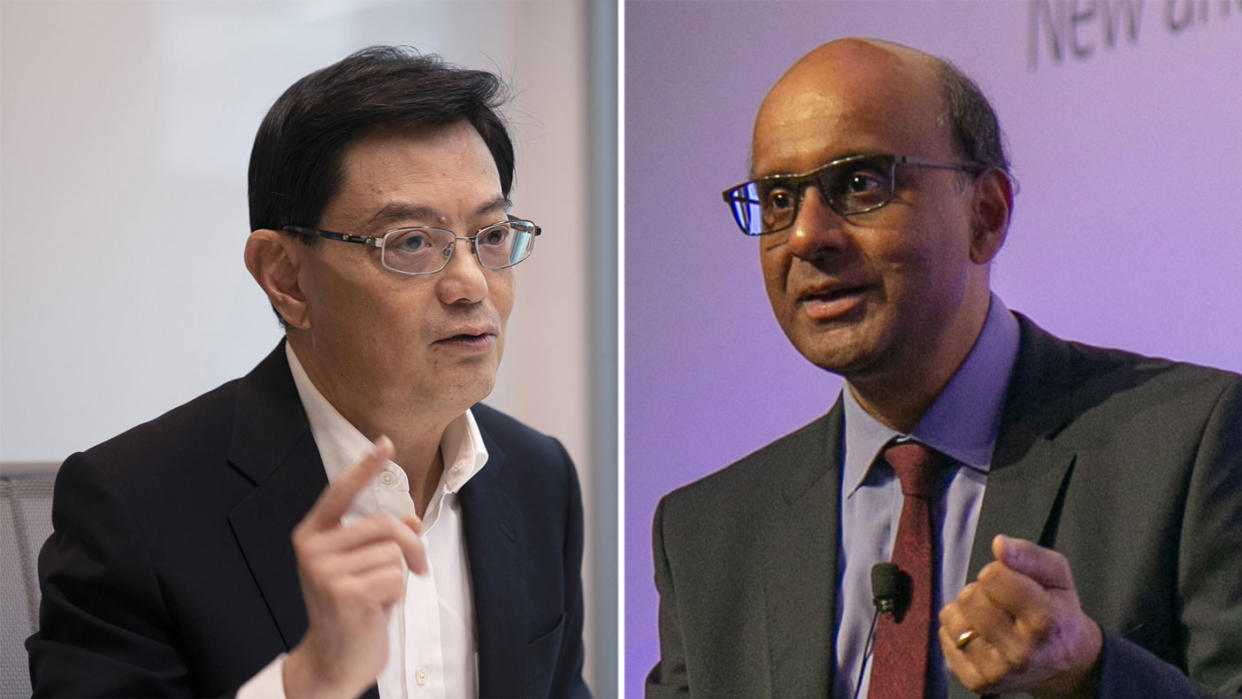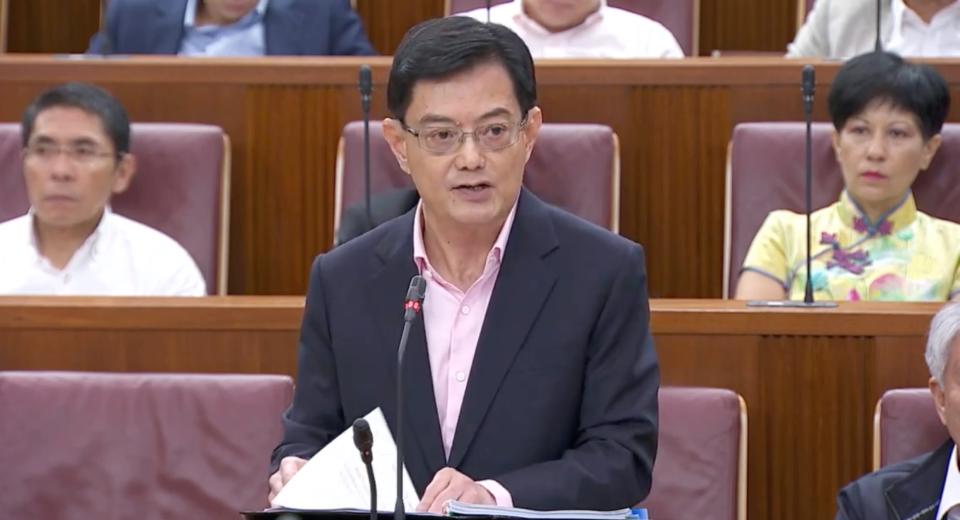COMMENT: Heng Swee Keat's minority PM remark echoes PAP's position

Heng Swee Keat, the heir apparent to Prime Minister Lee Hsien Loong, is probably hoping he could take back what he said last week. In ‘O’-Level terms, the former Education Minister got an F9 for what he said at a public forum.
At the Nanyang Technological University last Thursday (28 March), according to various reports, Heng was posed a pointed query on an issue that is a perennial slippery banana for the government. Alluding to Deputy Prime Minister Tharman Shanmugaratnam’s popularity among voters in his own ward, as well as a 2016 poll commissioned by Yahoo News Singapore that showed he was the top choice among Singaporeans to be the next PM, a member of the audience asked,
“Is it Singapore who is not ready for a non-Chinese prime minister, or is it the PAP who is not ready for a non-Chinese prime minister?”
A savvier politician might have prevaricated. The 57-year-old Finance Minister could have sidestepped the question, or perhaps talked about how leadership renewal requires younger men and women given that Shanmugaratnam is 62.
Instead, Heng turned to the People’s Action Party (PAP) playbook – a 10-Year series, if you will – and said, “I will say that it is a very positive sign that the young people will be quite comfortable (with having a minority PM), precisely because our policy of regardless of race, language, religion has been an emphasis in our system for so long.”
Heng then effectively suggested that older Singaporeans are less than colour blind when he added, “But if you ask me, that whether across the voting population, would that be the outcome, I personally don’t think so…My own experience in walking the ground, in working with different people from all walks of life, is that the views — if you go by age and by life experience — would be very different.”
So much for “regardless of race, language or religion” as the late Foreign Affairs Minister S Rajaratnam had envisioned when he drafted the final version of the Pledge. So much for “one united people”.
The more things change

Heng may have also said that Singapore would have a minority PM “at the right time”, but the damage had been done. The online reaction to Heng’s remarks was scathing, to say the least. Writer Sudhir Thomas Vadaketh accused the PAP of “let’s rule by fiat when it suits us and let’s defer to the electorate when it doesn’t.”
Many asked why Heng did not back up his words with statistics or studies. Others pointed out the apparent hypocrisy of the 2017 Presidential Election being reserved for Malay candidates, while the PM job is ruled out for minorities.
But then again, perhaps it was not truly a gaffe. It is important to note that Heng was somewhat echoing PM Lee’s words from 2008, when it was a very different political climate from now. Lee was asked at a dialogue with Malay grassroots and community leaders if the Republic was ready for a minority PM, specifically a Malay PM.
According to The Straits Times, Lee responded, ‘It’s possible. It depends on how people vote, on who has the confidence of the population. Will it happen soon? I don’t think so, because you have to win votes. And these sentiments – who votes for whom, and what makes him identify with that person – these are sentiments which will not disappear completely for a long time, even if people do not talk about it, even if people wish they did not feel it.”
In other words, a 4G leader – and the prospective PM, no less – was rehashing the ruling party’s tried and tested rhetoric when it comes to what it perceives to be uncomfortable issues.
What about moral authority?
The government has always been the self-appointed arbiter of discussions about issues of national interest. It shapes the narrative and is quick to slap down opinions that it sees as divisive or challenging its authority.
And the PAP has never been afraid of bulldozing its way through when it comes to policies that it is convinced are in the national interest. Closing down Nanyang University in 1980, for example, or the bilingual language policy. As a senior civil servant once confidently told me, “When this government says it will do something, it does it.”
One might argue that the government also gauges national sentiment before enacting policy changes. According to the PAP, there is a long list of things Singaporeans are not ready for: ending the GRC system (again a race-based policy just like the presidential system), decriminalising Section 377A of the Penal Code, a free press, and so on. It is not so much grabbing the bull by the horns as it is kicking the can down the road.
If it is truly the case, as Heng says, that older Singaporeans cannot accept a minority PM, then why isn’t the government doing something about it? If we can have social campaigns to tackle the undesirable aspects of Singaporeans, why can’t the government stand by its words and hold an open discussion about racial attitudes, given its uncompromising stance on maintaining harmony among the races? Would that be more difficult than pushing through constitutional amendments to ensure that a Malay president is elected?
Is this how a future PM demonstrates moral authority: by blithely throwing out a statement about the alleged racial bias of older Singaporeans, then doing nothing about it?
Most importantly: why is the PAP so reluctant to fully endorse the idea of a non-Chinese PM?
Changing course

To be fair to the PAP, it is not incapable of reversing course. In 2011, the backlash by voters against high salaries of ministers was so great that their pay was cut by more than a third, following the recommendations of an independent committee.
This despite the late Lee Kuan Yew once infamously claiming that high ministerial pay was needed to guard against “incompetent government”, and that a lack of it would see Singaporean women “becom[ing] maids in other people’s countries, foreign workers.”
But certain issues just seem to be a bridge too far for the ministers.
The irony for the PAP is that there appears to be broad consensus across the political spectrum that Shanmugaratnam would make a good PM. As an opposition member once told me in casual conversation, “If Tharman became PM, it would be the greatest blow to the opposition.”
But that ship has sailed. Perhaps one day, Singapore will indeed have a minority PM. When it’s ready for it, of course.
Related stories
Three times as many Singaporeans prefer Heng Swee Keat over Chan Chun Sing as next PM: survey
COMMENT: How Heng Swee Keat can return the favour to PAP cadres


